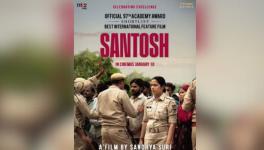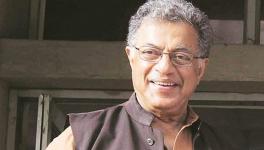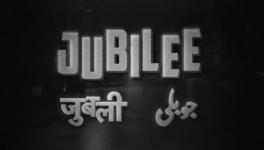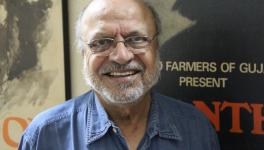How Myths Remain Relevant: Culture and Violence
Image for representational use only.Image Courtesy : New Indian Express
The timing of Girish Karnad’s passing away was remarkable, as can only be expected of one of India’s most well-known playwrights. It happened on the early morning of 10th June 2019, when his two children, in town for a brief visit, were preparing to return to their own worlds, far away. Their father had been unwell for many months but had fought his illness with great fortitude, and death does not seek appointments. But as if he knew, Girish passed away as the taxi to take his daughter to the airport was waiting at the door.
The most remarkable aspect of Girish Karnad’s life was the way he straddled the intellectual world of two very distinct areas of erudition, the wide universe of English and its literature, and the very intense, regional world of Kannada intelligentsia. Perhaps the only other person who was as good at that was A. K. Ramanujam, who died early in a foreign land. Girish stayed home and received the love of a million people. It was not that Girish could not have lived and worked abroad, but he has said that the publishing of his first play "Yayati" changed him from wanting to be a poet in England to being a playwright in India. We in Bangalore have been all the richer for that decision.
As Girish Karnad grew in stature, his position was as much of an upholder of the idea of India as a craftsman of drama. The idea of India is not the same for any two persons, but there is a canopy that gives us the space to be unafraid, to be together in protest against wrongdoing, against authoritarianism, against religiosity of an oppressive kind. Girish, even at the age of 80 remained a fighter for a cause and the irony is that through our ancient myths and legends, he found reason enough to tell us who belong to today’s world, how human values must be cherished, and how fundamentalism must be fought at any cost.
Through the use of tradition and myth, Girish expressed his dramatic urge and his ideological outlook simultaneously. How ironic it was that he, who was so vehemently opposed to today’s explication of Hindutva, returned to our past to articulate that opposition. In October 2015, he forwarded me an email he had sent to the office of the Minister of Culture and to the Secretary and Additional Secretary of the Ministry. I had long retired from service but I was honoured that Girish had included me in his thoughts. His piece in the mail was titled “How Myths Remain Relevant: Culture and Violence”.
Image Courtesy: Kractivist.org
A few days ago, the writer Amitava Kumar, who writes a monthly book column in the Hindustan Times, asked me, in view of my interest in mythology, whether the Dadri event reminded me of any myth. There are of course any number of Indian myths which deal with actual violence. But I told Amitava that more than twenty years ago I had written a play called BALI THE SACRIFICE (Oxford Univ Press) which is based on a myth immortalized .in the seventh- century Jain epic, Yashastilaka.
In the myth King Yashodhara is forced by circumstances beyond his control to perform animal sacrifice. But he is a Jain and is forbidden by his faith to indulge in violence. As a compromise he decides to substitute a rooster made of dough for the living animal. But as he is about to plunge the knife in it , the rooster begins to crow.
The myth mocks the Brahmins, who, yielding to the influence of Jainism and Buddhism, had started substituting pishta pashu s– animals made of dough–for live sacrificial animals at fire sacrifices, and arguing that thereby they were now being non-violent. It declares that violence in intention—sankalpa himsa, mental indulgence in violence—is as dehumanizing, as spiritually corrupting, as actual violence..
BALI has been translated into Hindi by Ramgopal Bajaj and published by Rajkamal Prakashan. It was launched on 10 October at the Jagaran Book Festival at Lucknow–only two weeks ago and in the shadow of Dadri.
At the launch, instead of reading from the play, I quoted a more recent text—our Culture Minister, Mahesh Sharma's declaration that what had occurred was not a 'murder' but an 'accident', that the wound showed that there was no 'intention to kill'. His entire speech made the gruesome violence more palatable by substitution of more acceptable words. On the other hand, although there was no question of any cow-slaughter at all but of consumption of beef, Sharma-ji went on to describe in consummate detail how cows are normally slaughtered.
Another aspect of the violence involved came from our Prime Minister who maintained absolute silence about the event for over a week and then commented that 'Hindus should not fight Muslims and vice versa,' as though that was what had happened at Dadri. An extraordinary bit of whitewashing by substitution.
Both Sharma-ji's words and Modi-ji's silence could have been part of my play.
-Girish
This mail is quintessential Girish Karnad. The extraordinary person many of us will remember is the campaigner, the eternal protestor against wrong, the crusader against social and political immorality. We will recall, from recent memory, how he sat with Gauri Lankesh, K Marulasiddappa and others to protest the killing of the rationalist MM Kalburgi. Then it was Gauri’s turn. Girish himself was on the hit list of the same extremist fringe elements, and yet, like Gauri, he refused to ask for police protection–his statement of courage. We will remember him for that visual statement he made when he attended the event marking the anniversary of Gauri's killing despite being unwell–he hung a cardboard notice that read “Me Too – Urban Naxal” around his neck because speaking was difficult for him then.
Was I possibly incorrect about Girish’s sense of timing? Did he actually get his timing wrong? He left us just when we needed him most – in the India of 2019. It is not easy to find people like him today. How many beacons of light do we have, how many voices of resonance against authoritarian rule? And more importantly, how many thinkers with a sense of our history, our multifaceted diverse culture? Very, very few.
And yet, I realise that I am not wrong. His timing was indeed immaculate. He had already fought a long, difficult war. He had shown the way for younger people to come forward, hopefully, a new league of extraordinary men and women. Girish Karnad the playwright wrote in the introduction to his Three Plays, published by OUP in 1994/2013 that “… In India …the past is never totally lost; it coexists with the present as a parallel flow.” Karnad the ideologue kept that as fundamental and central to his thinking. In today’s religio-political system, it is necessary for us to understand how the past that impinges on the present can point to a possible resolution of conflict for the future.
Thank you and goodbye, Girish Karnad.
Abhijit Sengupta is a former secretary Ministry of Culture, Government of India.
Get the latest reports & analysis with people's perspective on Protests, movements & deep analytical videos, discussions of the current affairs in your Telegram app. Subscribe to NewsClick's Telegram channel & get Real-Time updates on stories, as they get published on our website.
























